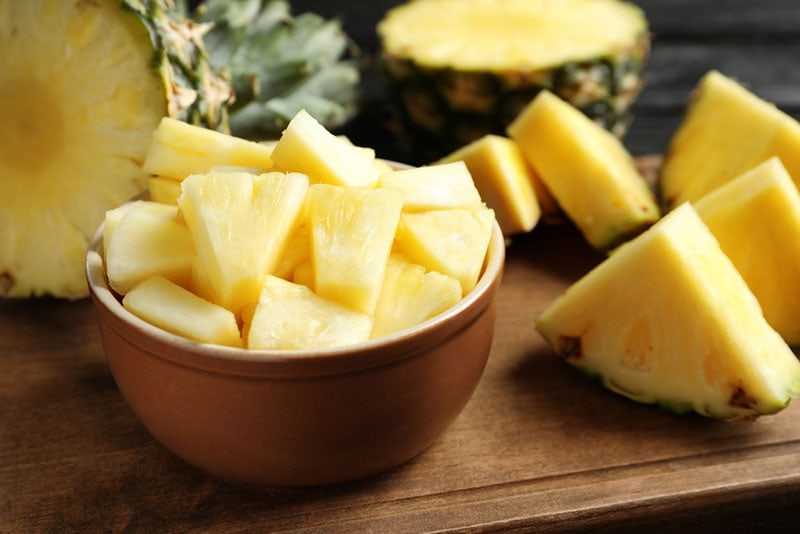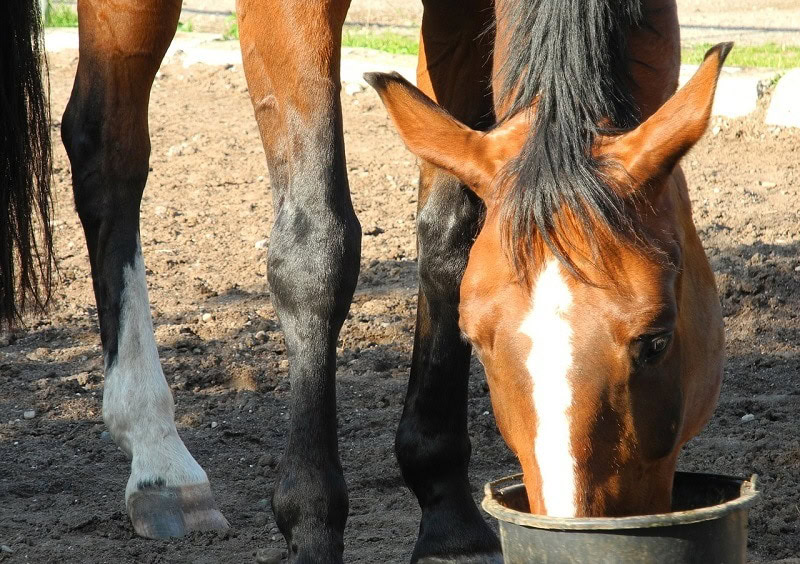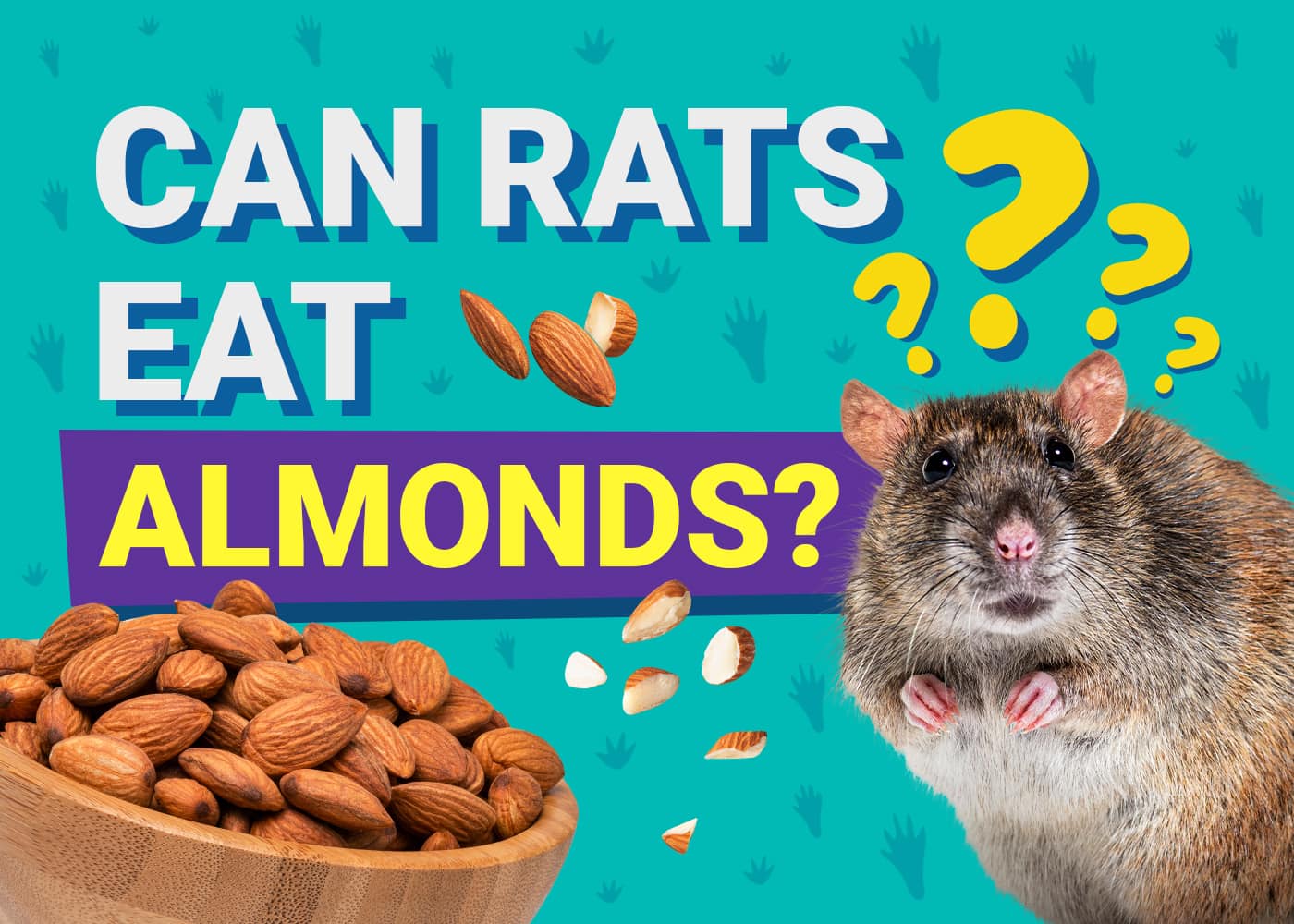Click to Skip Ahead
There are a wide variety of fruits that are perfectly safe to give your horse as an occasional treat. While all fruits should be given in moderation, your horse will love an apple or pear as a sweet treat. But what about pineapple? Is pineapple safe for your horse?
Yes! In moderation, a few slices of pineapple are a perfectly safe treat to give your horse, and they even have potential health benefits! However, there are also a few potential dangers to be aware of, and pineapple should not be given to horses too often.
In this article, we take a look at the benefits of feeding pineapple to your horse, as well as concerns to be aware of. Let’s get started!

Potential Benefits of Feeding Pineapple to Your Horse
Besides the sweet, juicy flavor of pineapples that your horse will undoubtedly love, nutritional benefits can be gained from the tropical fruit too. First, pineapples have a high water content that can help keep your horse hydrated on a hot day.
Pineapples are also high in vitamin C, a water-soluble antioxidant that is great for your horse’s immune system and helps fight free radicals; vitamin A, a nutrient that is critical for vision health and immune function; and vitamin B6, which can help keep your horse calm under stressful environments and is essential in energy production.
Pineapples are also low in saturated fat, cholesterol, and sodium and are great sources of dietary fiber to help maintain your horse’s gut health. Pineapples have fairly high levels of calcium, which helps maintain the structural integrity of your horse’s bones and teeth, and magnesium, which helps improve muscle and nerve function.

Potential Risks of Feeding Your Horse Pineapple
A large portion of the calories in pineapple come from sugar, and it is also high in fiber. The combination of these can cause stomach issues in your horse, including diarrhea, colic, and stomach cramps. The high sugar content is also not great for your horse’s teeth in excess and should not be given to horses with insulin issues at all. Also, the outer skin of pineapple needs to be completely removed before feeding it to your horse, as the sharp, jagged skin can harm their mouth and throat.
As with all sweet fruit, pineapple should only be feed in moderation as an occasional treat and is not a replacement for any part of their regular diet.
How Much Is Too Much?
Considering the high sugar and fiber content, we advise against feeding pineapple to your horse every day. At most, several slices once or twice a week are sufficient to give them the nutritional benefits of pineapple without any potential side effects.
Try giving your horse a small amount to begin with — a slice or two — and then wait for a day to see how they react. Most horses will be fine, but it’s good practice to make sure before giving them any new foods in larger amounts.

Can Horses Eat Canned Pineapple?
No. You should always feed fresh, raw pineapple to your horse. This is because canned pineapple may potentially have preservatives, flavorings, and added sugars, all of which are not good for your horse.
Other Fruits and Vegetables That Are Safe for Horses
- Apples
- Bananas
- Carrots
- Pumpkin
- Pears
- Grapes
- Oranges
- Cucumbers
- Cherries
- Peaches
- Corn

Conclusion
In moderation, pineapple is a safe and healthy fruit to give your horse on occasion. Just be sure to remove the skin completely and cut the fruit into small, edible pieces. Pineapple is high in sugar and fiber, though, and too much can cause stomach issues. As with any fruit, moderation is key! Your horse can enjoy a few slices a couple of times a week to gain the potential health benefits without causing any health problems.










